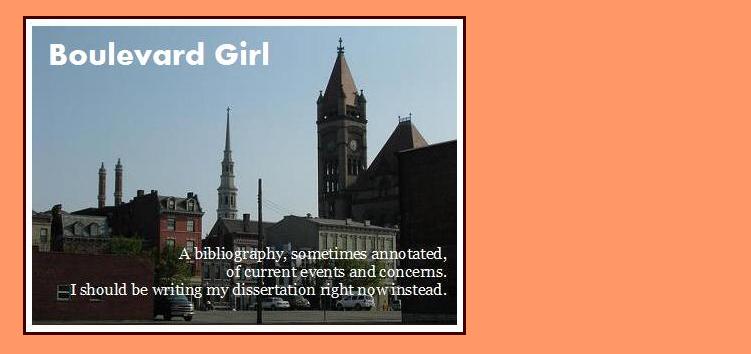Why Libya? This is a rare instance where what we should do is something we can do. Qaddafi expresses enthusiasm for murdering his own people, and has been bullying and/or terrorizing us and our allies--and basically half the continent of Africa--for decades. He has no friends at home or abroad, thus eliminating one common obstacle to making war on repressive rulers who constantly thwart our interests. That makes him less complicated to attack then the majority of situations where the international community, such as it is, might like to intervene to prevent a tyrant from slaughtering his own people. Also, in some cases the tyrants are our friends, or not so much our friends as unsavory strategic deals we are stuck with, at least in the short-term (Saudi Arabia). This does not mean that we should not publicly criticize their brutal crackdowns on their own uprisings. We absolutely should do everything we can to pressure them to reform, but we are not going to be sending planes in to take down an government with which we are allied.
Then you have perhaps the most greatest obstacle to ousting tyrants in countries like Syria and Yemen (and Iraq under Saddam), which is that they are not nations at all. Sectarian hatreds are brimming just beneath the surface, and will only be exacerbated, at least in the short-term, by the removal of the current strong man. The rulers in these countries are not only violently repressive (and they are unmistakably that), but they are also the current stop valve on what we can easily imagine would be civil war otherwise (at least in the short-term). It is much less plausible to criticize that we are “intervening in a civil war” in Libya, than if we were asserting a no-fly zone in, say, Bahrain, Yemen, or Syria. Yemen is an especially difficult case in that anarchy already reigns in parts of the country. Yemen is already a hospitable environment for Al Qaeda to carve out a home for itself. And then there are the countries where Iran has a stake--Syria in particular, and Bahrain. There is a great deal of uncertainty about what forces and factions will dominate a Qaddafi-free Libya, but the opposition to Qaddafi (and support, as minimal as it is) does not overlap with obvious sectarian divisions. No doubt they will find they have things to argue about, but at least there is unity in opposing Qaddafi. In Syria, on the other hand, there are probably sincere defenders of the current regime among Alawites--and legitimate fears that if the current regime falls, they will be slaughtered or otherwise put under the boot.
Is the "Arab Street" more enthusiastic about American military invention against Qadafi than the "American Street?" Michael Slackman, "Dislike for Qaddafi Gives Arabs a Point of Unity." New York Times. March 21, 2011.
Why has Obama made less of an effort to rally support at home than abroad? The U.S. Congress, whatever else one might say about, at least was elected by the American people. Garrett Epps, "Barbary War III: The Case for Congressional Authorization." The Atlantic. March 22, 2011. NB: the question Epps addresses, rightly I think, is not, is the President legally required to obtain Congressional authorization, but is it prudent for him to do so, to which Epps responds, "yes."
On the internal administration dynamics in the past few weeks. Obama's female hawks?
D.B. Miller, "War in Libya: Why We Had No Choice." The Atlantic. March 22, 2011.
Here is the rare alignment of a terrible, tyrannical head of state, an oppressed people pressing for change, and formal censure not only from the West, but also the Arab League. However tarnished, the U.S. is the last superpower, and in times of crisis, the world still looks to it. The choice was to bear witness to an atrocity, or to end it. President Obama chose the latter.
The argument follows that the United States is somehow hypocritical for bombing Libya but not the other oppressed Islamic nations using violence against its citizens. The implication of this position is that the choice is either war everywhere at once, or no war at all; the president appears to have answered it with a policy based on patience and opportunity, one country at a time. Tunisia's Zine El Abidine Ben Ali and Egypt's Hosni Mubarak fell without U.S. meddling or force. When Qaddafi falls, no one can credibly argue that America was the driving force behind these changes.
The strength of the president's policy is also its weakness. By waiting weeks, and then only after submitting for United Nations approval, Qaddafi positioned the Libyan chessboard to his liking. He has placed human shields so as to maximize civilian casualties and capitalize on the resulting press. He seized and fortified the town of Ajdabiya and blitzed Benghazi, provisional capital of the interim government.
***



